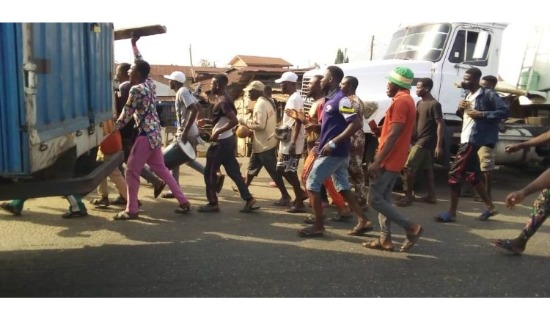Nigerians Mobilize for Nationwide Protests Against Telecom Tariff Hike
by Admin ·
 A nationwide protest is brewing in Nigeria following the Nigerian Communications Commission’s (NCC) recent approval for telecom operators to increase tariffs by 50%. The announcement has sparked outrage, particularly as Nigerians continue to grapple with economic challenges exacerbated by the devaluation of the naira and rising operational costs. Prominent telecom companies like MTN and Airtel had initially requested a 100% tariff increase, but on January 20, 2025, the Minister of Communications and Digital Economy, Bosun Tijani, confirmed that a 50% increase had been approved.
A nationwide protest is brewing in Nigeria following the Nigerian Communications Commission’s (NCC) recent approval for telecom operators to increase tariffs by 50%. The announcement has sparked outrage, particularly as Nigerians continue to grapple with economic challenges exacerbated by the devaluation of the naira and rising operational costs. Prominent telecom companies like MTN and Airtel had initially requested a 100% tariff increase, but on January 20, 2025, the Minister of Communications and Digital Economy, Bosun Tijani, confirmed that a 50% increase had been approved.
Once implemented, Nigerians will now face higher costs for telecom services: call charges will rise to N16.5 per minute from the previous N11, SMS rates will jump from N4 to N6, and the cost of 1GB of data will soar to N431.25.
This decision has faced significant backlash from various stakeholders, including labor unions, activists, and concerned citizens who argue that the timing of the increase is disastrous, given the current economic hardship. The Nigeria Labour Congress (NLC) has already vowed to mobilize workers for a boycott of telecom services, while the Trade Union Congress (TUC) described the hike as “outrageous,” warning that it would worsen the living conditions of Nigerians.
Dr. Yunusa Tanko, the National Coordinator of OBIDIENT Movement Worldwide, expressed his disapproval, labeling the tariff hike as a “wrong timing, wrong action, and wrong choice.” , Tanko argued that the country is already reeling from an influx of 14 million Nigerians falling into poverty in just one year, due to “uninformed government policies.” He urged the NCC and the Ministry of Communications and Digital Economy to reconsider their decision, suggesting that a more moderate 15% increase would be more reasonable.
Tanko’s call to action was echoed by popular Nigerian activist and politician Omoyele Sowore, who confirmed that plans for a nationwide protest are underway. Sowore, who recently met with the NLC leadership to discuss strategies, criticized the tariff hike as unjust and burdensome for ordinary Nigerians.
Comrade Timothy Onyilo, another activist, highlighted the negative impact the hike would have on students, especially in higher education. He stressed that many students rely on affordable internet access for research, and the price increase would only make life harder for them. “Things are already hard, and they are only making it harder. The only language the government understands is protest,” Onyilo declared.
The National Association of Nigerian Students (NANS) has also weighed in, issuing a 72-hour ultimatum to the Ministry of Communications and Digital Economy to reverse the decision, warning that the hike would exacerbate the digital divide and hinder students’ access to quality education.
Meanwhile, the Federal Competition and Consumer Protection Commission (FCCPC) has instructed telecom operators to prioritize service improvements such as network reliability and accessibility in their planned tariff adjustments, acknowledging the financial pressures on telecom companies but reminding them that “consumer interests remain paramount.”
With protests in the works and widespread opposition growing, the 50% telecom tariff increase is shaping up to become a major point of contention in Nigeria’s ongoing battle against economic hardship.













